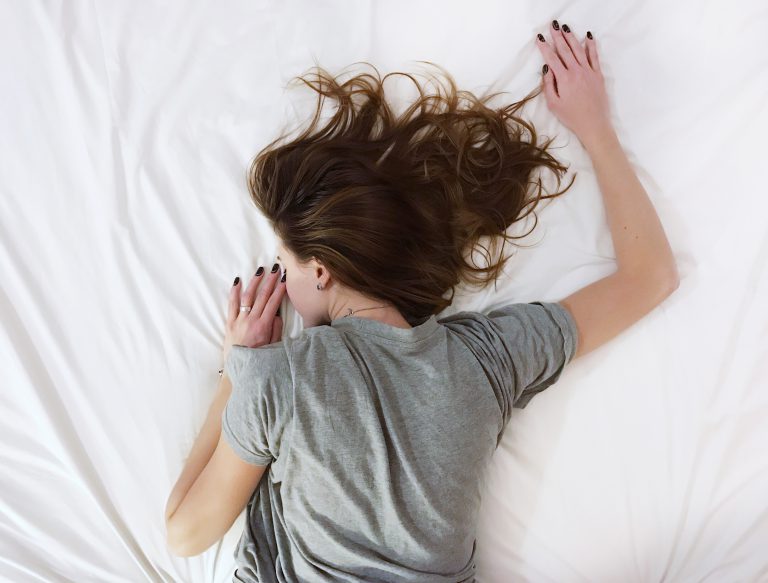
Having a bed with you wherever you go is one of the best things about owning an RV. That said, getting a good night’s sleep in that bed is sometimes easier said than done. Uncomfortable RV mattresses, noisy rest stops, and bright campground lighting can all make it feel nearly impossible to get good sleep in your motorhome or travel trailer.
Fortunately, there are many things you can do to help remedy this and get a good night’s sleep in your rig, no matter where you happen to be parked. Here are our best suggestions for doing just that.

Have a Good Night’s Sleep: Improve Your Mattress
The number one thing you can do to ensure you get the very best sleep in an RV is improve the RV mattress. Factory RV mattresses are almost always terrible, thin, and lacking any kind of support. This is a serious problem for anyone who plans to sleep in an RV often, especially if neck or back problems already exist or if insomnia is an issue.
The solution is obvious: Replace (or at least improve upon) your mattress. We love this Serenia Sleep Memory Foam Mattress as a replacement. However, it is on the pricey side. If you need a good budget mattress, you might want something more like this Zinus Mattress.
Need something even more budget friendly? A mattress topper such as this one might do the trick for you.
Sound Machines and Apps for Sleeping in an RV
Another thing you’ll need to consider when sleeping in a van or sleeping in an RV is noise level. While you might have some incredibly peaceful nights parked in the middle of nowhere, those nights spent in crowded campgrounds or parked in rest stops alongside big semis will be pretty noisy.
Since RVs have thin walls, almost none of this noise is blocked out, and this can make sleeping nearly impossible. This is where sound machines and apps come into play. A good, relaxing rain sound or some white noise can block out outside sounds and are it much easier to relax and have a good sleep.
We really like the following sound machines and apps for this purpose:
Fight Outside Light with RV Blackout Curtains
Besides mattress comfort and noise, you may also find you have issues with light making it into your room. This makes sleeping in RV bedrooms difficult no matter how comfortable or quiet they might be. Not only does the bright light signal your brain to stay awake, but sunlight coming in through the windows in the morning hours can heat the place up pretty quickly, especially in the middle of summer.
RV blackout curtains are by far the best solution to this problem. A good set of blackout curtains—along with vent or skylight covers, if applicable—can make your whole tiny home-on-wheels a dark and comfortable getaway, even in the middle of the day.

Other Tips and Tricks for Sleeping Better for Life on the Road
The three suggestions listed above are definitely the most effective tricks for improving your sleep quality while on the road. However, we do have a few more quick tips that may help you have a good night sleep:
- Sleep during quiet hours — Most campgrounds have designated quiet hours. These are the best sleeping hours if you find that campground noise bothers you.
- Seek out secluded sites — Looking for secluded campsites when in a campground—or choosing boondocking whenever possible—will help you avoid unnecessary light and sound that may keep you up at night.
- Invest in earplugs and a mask — If you can’t use a sound machine or blackout curtains, you may find that simple earplugs and a sleeping mask serve you just as well.
- Exercise during the day — A sedentary lifestyle can quickly lead to insomnia. Make sure you exercise every day. This should be easy enough while camping. Simply going for a hike can significantly improve your sleep.
- Avoid screens at night — Bright screens cause your brain to stay alert. Avoiding tablet, phone, and TV usage in the hour or two before bed may help prepare your brain for sleep.
- Watch what you eat and when — Eating a large meal right before bed or drinking caffeine in the late afternoon can have a serious impact on your sleep. Make sure to eat dinner early in the evening, avoid coffee and tea after 4pm, and if you’re hungry before bed, pick a light snack without much sugar.

